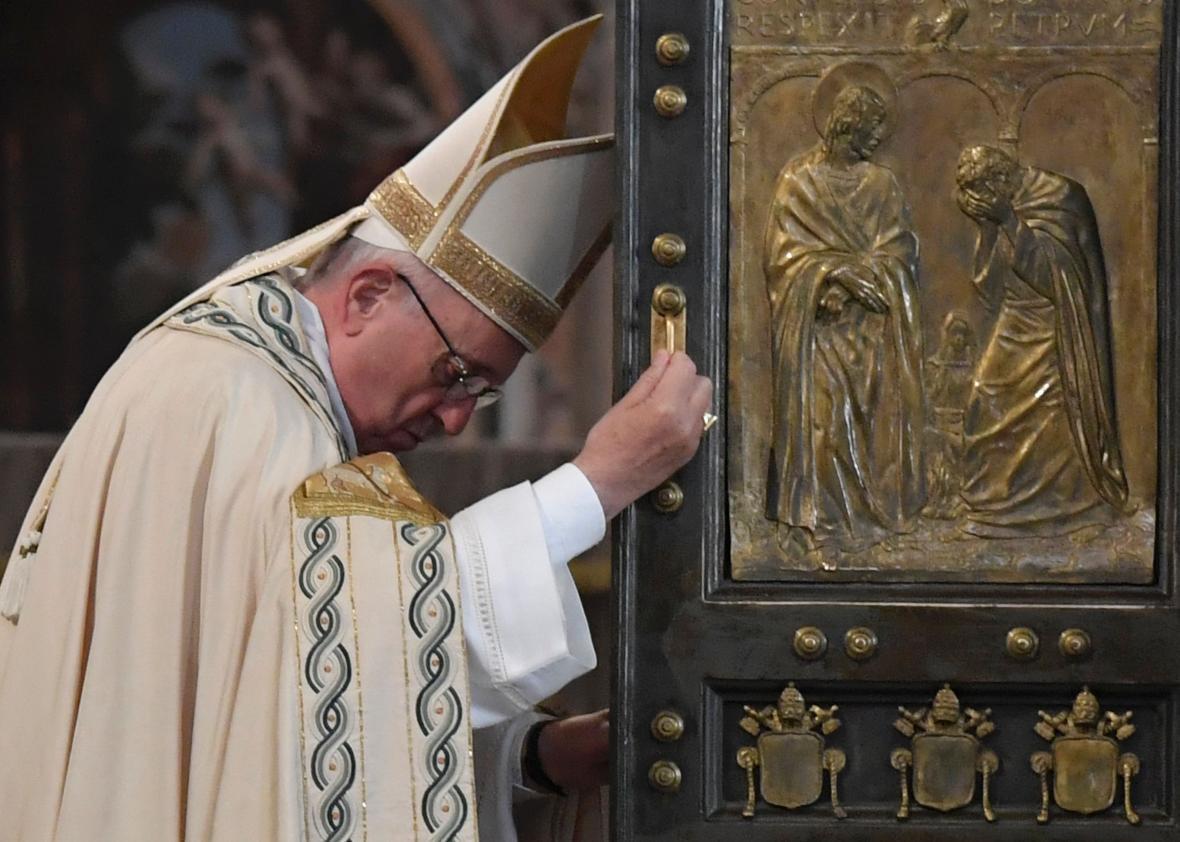Abortion is a sin that can be forgiven by any Catholic priest, Pope Francis announced Sunday. Like many of this pope’s previous newsmaking moves, it’s a subtle bureaucratic change with profound implications.
The news here is not that abortion is newly forgivable. Within Catholicism (and Christian theology more generally), all sins are ultimately forgivable with repentance. But the pope’s announcement is a gesture toward making that forgiveness more accessible. In the United States, the change will be mostly symbolic. Previously, the power to grant absolution to those who confessed involvement with abortion was given only to bishops. Bishops could delegate the task to local priests, which was already common practice here.
The announcement follows Francis’ preference for empowering local parishes and stripping away the layers of bureaucracy that alienate many Catholics from engagement with the church. (In the United States, the church has an atrocious retention rate compared with other faiths: A Pew survey last year found that 41 percent of Americans who were raised Catholic have since left the faith.) This spring, the pope released a 256-page document on marriage, sexuality, and divorce that aimed for an emphasis on forgiveness without major policy shifts. “Amoris Laetitia”—“The Joy of Love”—opened the door for divorced and remarried Catholics to partake of the Eucharist, for example, without undergoing an expensive and time-consuming annulment first.
This week’s announcement is an indefinite extension of a temporary policy that the pope put in place last year as part of the church’s “Year of Mercy,” a celebration emphasizing forgiveness and reconciliation. The Year of Mercy began in December and ended on Sunday, which means it was actually not quite a year. Critics will surely argue that it’s not quite mercy, either. After all, the pope’s new statement on abortion leaves no doubt that the church still considers the procedure sinful, even as it smooths the path to forgiveness. “I wish to restate as firmly as I can that abortion is a grave sin, since it puts an end to an innocent life,” he said. “In the same way, however, I can and must state that there is no sin that God’s mercy cannot reach and wipe away when it finds a repentant heart seeking to be reconciled with the Father.”
It can be hard to square Catholicism’s radical rhetorical focus on mercy—particularly under Francis—with its reputation (within and without the church) for inducing shame. “Nobody knows guilt like a Catholic woman in an abortion clinic,” gynecologist Jennifer Conti wrote in Slate last year. Almost a quarter of abortion patients are Catholic, and the Catholic abortion rate is about the same as the national average. This is in contrast to, say, evangelical Protestants, who are about half as likely to seek abortions as their peers in the general population.
This means that in the United States, at least, the church’s historic approach to abortion has failed—if lowering the Catholic abortion rate is the measure of success. In a completely unrelated phenomenon, recall the Catholic Church also forbids the use of birth control—although its followers act much like the general population there, too. One interpretation of these numbers is that most Catholics aren’t following their leaders. But maybe there’s a silver lining for the church in the fact that there are millions of Catholic women out there who have had abortions. It means there are millions of people listening very closely to the pope this week.
